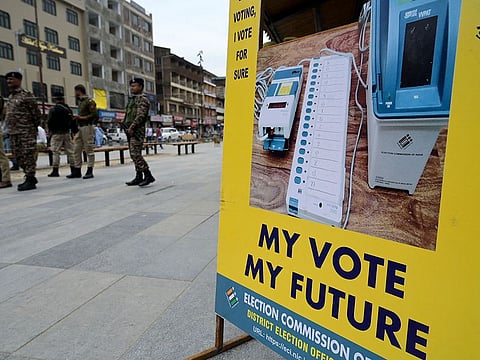Why the Indian Election Commission’s recent moves are drawing national attention
Poll panel’s push to update rolls has sparked debate over transparency and timing

The furore over the Election Commission’s move to revise the voter list in Bihar just months ahead of assembly polls has only deepened, with the poll panel now reportedly planning a similar exercise across the country. In the name of cleaning up the rolls, the panel is effectively on a drive to disenfranchise millions of voters, with huge ramifications for our democracy.
In a democracy as vast and complex as India, institutions are the bedrock that hold the republic together. Among these, the Election Commission of India has traditionally stood tall — an independent, impartial guardian of free and fair elections. Yet, over the last few years, this once-trusted institution has come under increasing scrutiny, coming under political pressure, compromising its integrity, and selectively enforcing the rules.
The credibility crisis has not come overnight. It has been a gradual erosion, marked by a series of decisions — and silences — that suggest the commission is no longer the neutral umpire it once was, but a player in the game tilted in favour of the ruling establishment.
Model Code of Conduct
Under the leadership of former Chief Election Commissioners like T.N. Seshan, James Michael Lyngdoh, and S.Y. Quraishi, the commission was known for enforcing the Model Code of Conduct strictly and not sparing even the most powerful politicians. Today, its reputation lies in tatters.
Now, the Model Code of Conduct is selectively enforced. The panel is quick to act against opposition leaders but stays silent when there are blatant violations by senior BJP leaders. In the 2021 West Bengal elections, for example, the poll commission’s decision to conduct elections in eight long phases — amidst a deadly second wave of COVID-19 — was widely seen as favouring the BJP’s logistical strengths.
But perhaps the most worrying aspect of the poll panel’s decline is the increased opacity in how it works. That explains the now frequent clashes between the panel and opposition leaders who have accused the commission of withholding voter data, of discrepancies in voter turnouts and now, deleting large numbers of voters altogether through the intensive revision of rolls. The panel may not be guilty of any of these, but the way it has behaved, simply brushing aside the opposition’s concerns without a detailed explanation, has only deepened the perception that all is not well.
Revision of rolls
That is why the special revision of rolls in Bihar has evoked such a huge outcry. In a country where millions of poor people don’t have access to the 11 documents the commission is asking citizens to produce to be part of the rolls, the sheer bureaucracy of the exercise is stunning. It simply is not enough to have government-issued cards like an Aadhaar or a ration card to be able to enrol on the voter list. Because the poll panel just won’t accept it. It is not the panel’s job to determine the citizenship of people, as the Supreme Court rightly pointed out. That is the job of the Home ministry. If there is one power Indian citizens have had across the caste and class divide, it has been the power to vote. Today, the poll panel is threatening to take away that only power that so many millions have. And their reasoning simply does not cut ice. Analysts have also pointed out how exercises like this in the past were done after consultations with all political parties. This time, no such thing was done.
It does not bode well for our democracy when citizens begin to question the integrity of the election process. This is what we held most dear for decades. For this, the Commission has only itself to blame. It does not want to be scrutinised, does not want to face critics or be held accountable for anything.
A panel above suspicion
For a democracy to thrive, its electoral body must be above suspicion. When faith in the election process falters, the legitimacy of the entire democratic framework comes into question.
The decline of the Election Commission is a cautionary tale about what happens when checks and balances are eroded. Restoring its credibility will require deep reforms: genuine independence in appointments, transparent processes, strict enforcement of rules, and above all, moral courage.
India deserves an Election Commission that stands with the Constitution — not with the party in power.
Sign up for the Daily Briefing
Get the latest news and updates straight to your inbox








